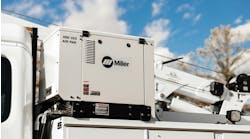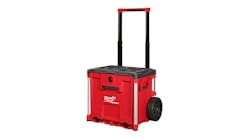State and local building codes in every U.S. state, plus Washington, DC, now require that all installed vehicle lifts be certified to meet ANSI/ALI ALCTV-(current edition) safety standards, says John Rylee, director of marketing for Rotary Lift , the leading brand of vehicle lifts and equipment designed to increase technician productivity (www.rotarylift.com). This requirement is found in the International Building Code (IBC Chapter 30, Section 3001.2), as adopted at the local and/or state level.
ANSI/ALI ALCTV-2006 is the recognized American National Standard governing the design, construction, testing and validation of automotive lifts.
ANSI is the American National Standards Institute - the organization approved the standard. ALI is the Automotive Lift Institute - the trade association which developed the standard and sponsors a certification program for vehicle lifts. ALCTV stands for Automotive Lift Construction, Testing and Validation. 2006 is the year that the current standard was updated and adopted.
Among other things, ANSI/ALI ALCTV-2006 provides:
- General requirements for strength of all vehicle lift components.
- General requirements covering drive components, electrical components, control devices and speeds.
- Specific requirements for a wide variety of elements, including welding, runways, adapters, swing arms, travel limits, load-holding devices, accessory equipment and other safety considerations.
- Quality assurance systems and procedures, testing and validation.
- Requirements governing lift instructions and labeling.
THE GOLD LABEL
How do you know if a lift meets the ANSI/ALI ALCTV standard? Look for the gold label.
Responsible lift manufacturers contract with an independent nationally recognized testing laboratory like Intertek Testing Services (ETL) to test their vehicle lifts in accordance with the standard, Rylee explains. Testing includes verification of the structural integrity of all the lift’s systems and components, proper function of its controls and load-holding devices, proper lowering speeds and overload protection.
The lift manufacturer’s production facility also has to meet quality control requirements. Only lifts that pass these tests can carry the gold “ALI Certified/Validated by ETL” label.
Lifts sold in the U.S. do not have to be certified, he notes. Certification is voluntary. There are no legal requirements that lifts sold in the U.S. be certified to meet the standard, regardless of where the lifts are manufactured.
Therefore, responsibility for buying and installing certified lifts rests with the customer, emphasizes Rylee.




